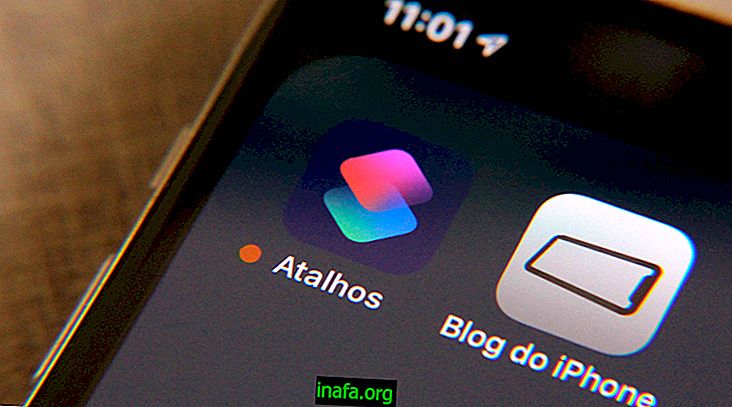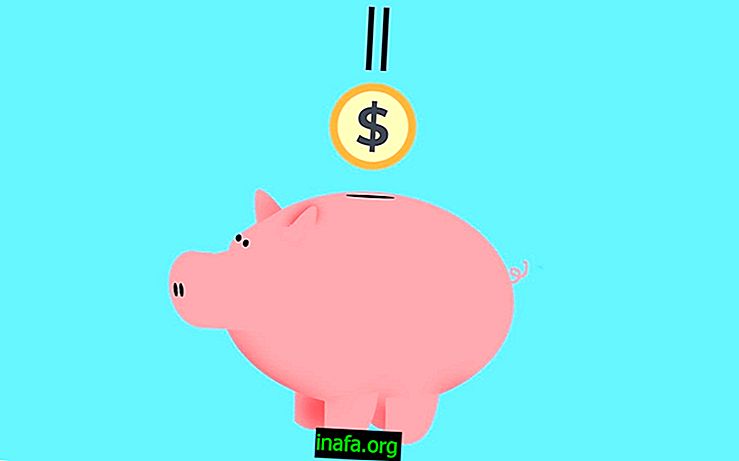15 Types of Dangerous Android Apps You Should Avoid
Among the millions of apps available for Android today, you may have come across some suspicious media. The good news is that Google has greatly improved its security measures, being able to quickly identify and remove malicious apps from the Play Store, and offer apps to block ads. The problem is that there are still some kinds of dangerous Android apps that may go unnoticed. Many of them do not have malware per se, but can lead to intrusive ads and downloads of unwanted files. To avoid this risk, check out our list below and learn what types of apps to avoid!
Also read: 5 steps to duplicate apps on Android
1. Cleaning Apps

Apps that promise to clean your smartphone of useless files are some of the most dangerous. Android only stores the files, photos, videos, and documents you have downloaded or left there yourself.
Therefore it is quite easy for any user to delete them on their own. Because some think these apps will make their smartphones faster, they eventually install them and let them analyze all the data on the device.
In addition to having no real effect on the speed of your phone, these apps may contain dangerous malware. Other than that, they have access to your data and files.
2. Apps to scan viruses
There are also many applications that promise to scan potential viruses on your smartphone. Trust only company-made apps known for antivirus in these cases, such as Avast, Kaspersky or Bitden, for example.
Any other app that promises this feature should be searched before you install it. In addition to having access to your data and files, apps of this type can also trick you into saying they have found viruses on your smartphone. With this, the app can make you download additional files that can be very dangerous.
3. File Explorers
In the past, file explorer apps were very useful for Android smartphones that did not have this function natively. Unfortunately, they can contain many features and ads that can lead you to some kind of malware.
Many of them may also be showing warnings that you may download additional data or apps that may be harmful to your device. If you can, it is good to avoid them.
4. Apps with Strange Permissions
This goes for any kind of app you install on your smartphone, so it's always good to keep an eye out. In the latest versions of Android, users need to give their apps permission to access various features of their smartphone.
This is a great security measure and something you should always use to your advantage. To get started, always make sure the permission requested by the app matches what it does.
For example, if an app serves to retouch photos, it's natural that they need permission to access your gallery, but not that they want to use your microphone. Of course there are some exceptions, but it's always better to be suspicious.
5. Apps to improve battery
Nothing that apps that promise to improve your battery life really works. In general, they only drain your smartphone even more while still showing you several ads that can be harmful. There are no exceptions for apps of this type, so avoid them at all costs.
6. Apps outside the Google Play Store

Google scans all apps that go into the Play Store, so the chances of finding something malware out there are pretty tough. Even if a malicious app can break into the store, Google can identify and remove them from the store in no time.
Still, a lot of people end up downloading apps outside the Play Store. This can be useful in many situations, but it can also be dangerous when you don't know if the downloaded app has a virus. Therefore, we suggest researching well before installing any external app on your Android smartphone.
7. Games that mimic other famous games
It is common to find famous game clones out there, especially when they are at the height of their popularity. They usually appear as a free version of the original and take the opportunity to put malware on the smartphone of the installer.
Therefore, we suggest that you stay away from any game posing as another. It also happens a lot that they are only available on consoles or on the PC, so always be aware and avoid these types of games on Android.
8. Apps that impersonate popular apps
What we talked about in the topic above applies to applications as well. It's not uncommon to find multiple versions of WhatsApp, Uber, Facebook, and Instagram in the Google Play store.
Although many do not carry malware, they can mislead the user into providing important data and even the number of their credit cards.
9. Ad-Filled Applications
It is normal for games and apps to have some ads in their free versions. This is a way for developers not to have to charge for using the app and still get features to keep updating them.
The big problem is when some apps show intrusive ads all the time. This is especially true for ads that appear out of nowhere when you are clicking on the screen, which can cause them to open a tab in your browser or start a download.
10. Applications that ask for your information
There are many seemingly innocent apps that ask for personal information for no reason. Unless this is essential for using the app in question (such as on social networks, for example), it is best to avoid giving any data to them. Pay even more attention to those who ask for your credit card number.
11. Apps that promise to make your phone faster
This type of app falls into the same problem as battery and cleaning apps. They do not deliver as promised and still fill your smartphone with unwanted ads and downloads.
Other than that, the tactics they use to “make your phone faster” only slow the device down or run out of battery. Avoid apps like this whenever you can.
12. File Transfer Apps

File transfer applications turn out to be extremely similar to file explorers. They also have many malicious ads and may be asking you to download additional apps or files. Since you can simply transfer files from your phone with any USB cable connected to your PC, you don't need to use these apps.
13. Apps that promise Wi-Fi for free
If you do not have the password for blocked Wi-Fi networks, you will not be able to unlock them only by using apps. Still, there is no shortage of apps that promise free Wi-Fi to their users.
We suggest that you make the most of using apps that search for public Wi-Fi networks. However, we don't recommend that you leave your smartphone connected to any such network, as your device may be hacked.
14. Apps to record calls
Some call recording apps may be useful, but there are many that simply rely on too many intrusive ads. Other than that, you also have to be careful when giving permissions for these types of apps, as they usually only need access to your microphone and contacts.
15. Flashlight Apps
Most Android smartphones already have the flashlight feature natively. Still, there are many flashlight apps in the Google Play store being downloaded by thousands of people.
Unfortunately, most of these apps have many ads that open pages on your web browser or that may initiate unwanted downloads. As there is no reason to install them, avoid them whenever possible.
What did you think of the dangerous Android apps?
Could you take our list to learn more about the dangerous Android apps you should avoid? Don't forget to leave your comment telling us what you think.



